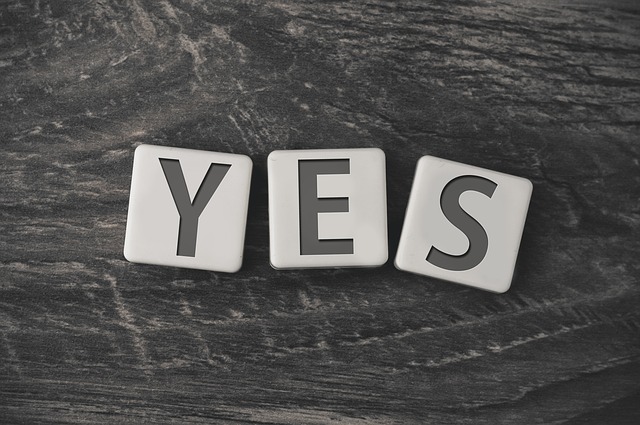
As an editor and ghostwriter, I really don’t like the question, “Do you like my book?” That may seem counterintuitive; if I’ve spent a good chunk of my life working on it, I must like it, right? I wouldn’t take on a book I didn’t think was good, would I?
You may be surprised to learn that the question doesn’t actually come up that often. Maybe I’m good at demonstrating investment in and care for the manuscript and that’s good enough. Maybe authors assume I like the book or I wouldn’t have agreed to work on it. Or maybe they’ve already worked through their anxieties that their editor hated their book and are ready to move on.
I understand, though, why the question comes up when it does. This is not a post about “5 Things You’re Doing Wrong as an Author” designed to playfully shame you about things you ought to know better about even though no one told you till you read the snarky article. I hate that kind of stuff, actually.
An Understandable Impulse
No, I’m an author, myself, and I totally get where the impulse comes from. You work so hard on this manuscript and then entrust it to an editor you just met a few days ago, and you want to hear from a third party, someone who you’re not friends with or sleeping with, that it’s actually good. It’s affirming, validating, comforting. It inspires hope and makes you feel better about the time and money you’ve invested in this thing.
With a ghostwriter, it’s even worse. You spend anywhere from 25–40 or more hours in interviews and strategy sessions, and you know he’s spending another 50 or 60 hours on it, and then they produce this book that will represent the best you have right now to the world. It’s unimaginable that someone would invest 100 hours of their life into something they didn’t even value…but what if they did?
It’s Not a Dodge
I want to be honest with you: As much as I understand the impulse, when an author asks me, “Do you like my book?” I want to fake a bad cell phone connection, get off the call, then break my SIM card and take down my website so they can’t find me again. An extreme version of the other kind of ghosting I do.
On the same note of honesty: I don’t feel comfortable with how I’ve handled that question most of the time. In fact, I have an email from an author asking if I would give the book to my friends that I’ve let sit there in my inbox for weeks. We’ve had conversations since he sent it, and he even mentioned it as an aside at one point, but I’ve not taken the effort to answer it.
But I promise it’s not a dodge. It’s not that I’m hiding something from you that you should know before you embarrass yourself by publishing this book. It’s not you; it’s me. I don’t have a good answer. That’s it. Okay, maybe it’s a dodge.
Now, you’re probably thinking, “That must mean you don’t like it!”
Okay, in the “Secret Thoughts of an Editor and Ghostwriter” version of this post, I might share my internal monologue, and it might start something like, “No, I probably wouldn’t share it with my friends. Maybe some of the ideas. I think there’s good stuff in it. It’s a decent book, but I wouldn’t say I love it.”
Devastating

If you’re an author, you may have gasped out loud reading those last lines. I held my breath while writing them. We editors and ghostwriters aren’t supposed to admit to those kinds of thoughts. We’re not the book’s marketers, but we’re still supposed to be on its side.
If you want to hear, “Yes, your life’s work to this point in book form is wonderful, I love it,” then an honest reaction such as the above will be devastating. It will feel equivalent to me saying, “You cannot understand how much I hated working on this book. I could not stand a single line of it and hope I never see it again.”
But that’s not what I said!
I’m a professional word worker. I see hundreds of thousands of words a day and am often getting paid to make them better words. Just because I write the words doesn’t mean I will like the words. I liked something about your book or I wouldn’t have taken the gig. I see value in it; I think it will help people or entertain people. One can hardly hope to do more. Is it a perfect book? Is it a New York Times bestseller? Let’s be real: No.
I’ve worked on several novels where the authors weren’t interested in certain changes I wanted to make. I still think they were good changes, but the authors really liked the events or characterizations or scenes or whatever that they had already. I’m supposed to whole-heartedly undersign the whole book in this case?
You wanted an honest answer (that question often comes with something like, “It’s okay if you say no”). Well, I gave you an honest answer. Except it turns out you didn’t want an honest answer, exactly. And that’s why I hem, haw, and avoid (but it’s not a dodge!).
What I should have said was…
In the calm of my office, not holding an anxious client on the other end of the phone or staring her down on a video call, I think I can formulate the right response to this question.
If you ask me as your editor or ghostwriter, “Do you like my book?” the best answer I can give you is:
“Yes.”
“What?” you may ask. “Just like that? Even if you’re thinking all that other horrible stuff? You’re just going to lie to me? I didn’t know editors were such deceitful, wretched monsters.”
I’m not going to deny there may be something monstrous about people who will fight over whether or not to put a comma before the conjunction in series, but this is different.
Yes, it’s true that I may have all manner of reservations and ambivalence about the manuscript I delivered to you. I may not ever want to read it again on my own time. I may have a list of problems I didn’t feel I could solve either because they foiled my expertise or they were beyond the scope and budget of the project.
It is nonetheless true that I have never taken on a project that I did not see value in. If I offered to work on your book, it means I liked your book. Something about your book, anyway.
Unpacking “Yes”

It’s worth unpacking what “yes” means, because it means several things.
Your Book Has Value
First, as I’ve said, I believe your book has value. That is, I believe your audience can read it and come away having grown in knowledge, empathy, compassion, understanding, appreciation of life, and so on.
Your Book is Professional
I believe I have delivered you a professional-grade manuscript that will make you look competent and authoritative. That will make me look good, too.
Your Book Serves Its Purpose
Whether you’re describing your success program or telling a sci-fi tale, I believe your book accomplishes what you want it to and will thus not waste your audience’s time.
Your Book Has an Audience
Somewhere out there are people who will read this book and really resonate with it. You’re answering a question or fulfilling a desire that some readers have.
“Yes” Does Not Mean…
Let’s circle back to my opening confession that I don’t like the question, “Do you like my book?” As I’ve been at pains to explain, it’s not a matter of secretly hating your book and not wanting to admit it. Rather, it strikes me as the wrong question.
Whether or not I, in all my particularity, like your book is probably not relevant because I may not be your audience. It’s not important if I like your book if I’m not the kind of person you’re trying to reach.
And let me tell you, I am a very tough crowd. I have my hobbies and interests, but I am not a big consumer and will probably not be interested in your upsell. But that’s me. I’m not your audience.
It’s also often beyond my craft as an editor or ghostwriter to write a book using your ideas that is a book I would like. I helped a guy write a book on investing in the self-storage industry. I’m not into real estate and don’t foresee becoming so. I think we made a helpful little book, though, for people who are.
The Better Question
The better, more relevant question is, “Does this book communicate its message to its audience?”
That’s why you’re hiring me to edit or ghostwrite your book, to help you take what’s inside you and connect it to the people in your tribe. I’m not in your tribe. You are paying me. Your tribe are the people who want to pay to be with you.
Ask me if I like your book, then, and I’ll say, “Yes, I do.” And now you’ll know what I mean.
If you have a manuscript or a story that needs telling (and you don’t mind avoiding certain questions), let’s talk about getting it into print in a way you can be proud of.
Photo by Jean-Louis Paulin on Unsplash



Pingback:Why a Book Stalls at the Developmental Edit - Brad Fruhauff